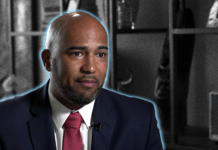The rise in cases of teenage depression and suicide is an alarming one, especially in the Black community. A new study by Rutgers University shows that Black teenagers face racial discrimination up to five time a day on average, and this discrimination often leads to depression. With the recent increase in awareness toward mental health and well-being, this kind of information is critical in the fight to save and improve lives.
Recent headlines lend an unwelcome validity to the study; the uptick of Black children committing suicide is particularly disturbing, and constant discrimination adds more fuel to an already dangerous fire. The difficulty of navigating adolescence has become increasingly demanding in the current age of technology. The trend of schoolyard bullying has now become an inescapable, in the form of constant, consistent torture.
Long gone are the days where name calling and physical confrontations were limited to school hours. In the smartphone age the malice follows teens everywhere they go, hitching a ride in their pockets from school to every corner of their existence by being preserved and amplified on social media. Kids can no longer evade the taunting of their peers, and the badgering is no longer contained to their specific school, peer group, extracurricular hobbies, town, state, country, or even continent. Multiply bullying by the current racial climate in this country, add socio-economic factors (such as poverty and violence) to the mix, and you have a formula for disaster.
Consider the tragic story of Bryce Gowdy, the 17 year old Floridian football star, who was days away from enrolling at Georgia Tech on a football scholarship. Gowdy had been beset by mental health issues, and his family had recently become homeless. He was already under the pressure of maintaining his 3.73 GPA and trying to take care of his mother and siblings; Imagine what other discrimination based pressures a 6’3”, 207 pound, Black, dreadlocked, man-child living in the state of Florida encountered daily. According to the study, it would be safe to assume it was five times more than a white man-child. Bryce stood in front of a train one night to put an end to his suffering.
Weeks earlier, Zachary Winston, a 19 year old basketball player for Albion College in Michigan, did the same. Winston was also one of three Black students who all attended the same predominantly white high school in Michigan, and had all committed suicide within the span of two months. Again, the findings of the Rutgers study prove valid. As Black children experiencing a heightened level of discrimination daily, compounded with the challenges of modern adolescence, there is ample reasoning to conclude their mental health and well being was very much affected by race based inequity.
Dr. Michael A. Lindsey, Executive Director of the NYU McSilver Institute for Poverty Policy and Research, worked with the Congressional Black Caucus on a study performed by the Emergency Task Force on Black Youth Suicide and Mental Health. He was made aware of the disturbing Michigan high school trend by concerned parents, while waiting for the CBC to release the December 2019 report. In a Washington Post article, he is quoted as saying:
“It’s the thousand-pound elephant in the room that we’re not talking about…We think that black kids aren’t doing that — that’s something white folks do. Some of my research — and that of others — has pointed out that, no, that’s not the case. More and more black kids are doing this.”
The pressures of growing up in America are innumerably expanded for Black kids; Their experiences with heightened discrimination has been proven time and time again to affect their mental health, leading to depression and climbing suicide rates. If we are to impede this statistic, we must first accept that Black kids are seen in a different manner, thought about in a different manner, and treated in a different manner in this country, and that difference is literally killing them.
As stated by professor Keeanga-Yamahtta Taylor,
“For all we hear about black men — the descriptions, the characters of thugs, of hard life — we never hear about the trauma, the pain, the humiliation, the suffering, the stress, the depression of what it must be like to be considered less than human by the society into which you were born. We never hear, for example, that for young black men age 15 to 24 suicide is the third-leading cause of death.”
To draw on the title of Dr. Lindsey’s study: it’s time to “Ring the Alarm” on the mental health and well-being of Black kids in this country, and help end this nightmare.










